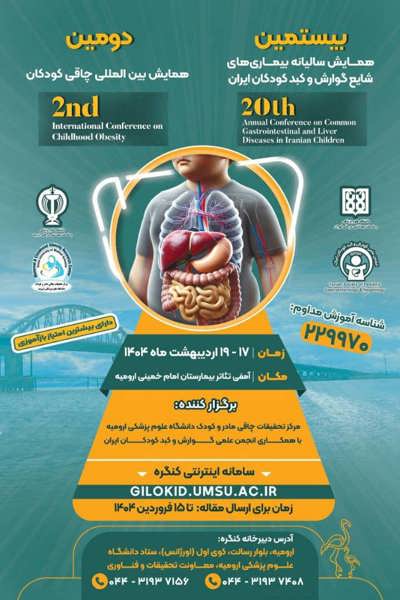0% Complete

صفحه اصلی
/
بیستمین همایش سالیانه بیماری های شایع گوارش و کبد کودکان ایران و دومین همایش بین المللی چاقی کودکان
نویسندگان :
کلمات کلیدی :
چکیده :
لیست مقالات بایگانی شده
Amirhossein Hosseini - Alireza Khalaj - Maryam Barzin - Mina Alibeik - Soheil Omid
Sadra Khodaei Alamdari - Faezeh Ghalichi - Negar Moosaee
Sanaz Yari - Paniz Bahari - Sara Arefhosseini
Mahdie Feizi Eliyas Abad - Mortaza Taheri-Anganeh - Mohammad Reza Asgharzadeh - Ebrahim Mazloomi - Hadi Maleki-Kakelar
Razieh Vaezi - Laleh Payahoo - Mohaddeseh Ghahremani - Yaser Khajebishak
Ladan Soltanzadeh - Ali Mirzaee AghGonbad - Sulmaz Soltanzadeh
Kosar Rajabi - Faezeh Ghalichi - Sadra Khodaei Alamdari
Golnaz Khodayari - Nastaran Vakilbashi - Kiyanoush Jafari - Faezeh Ghalichi

